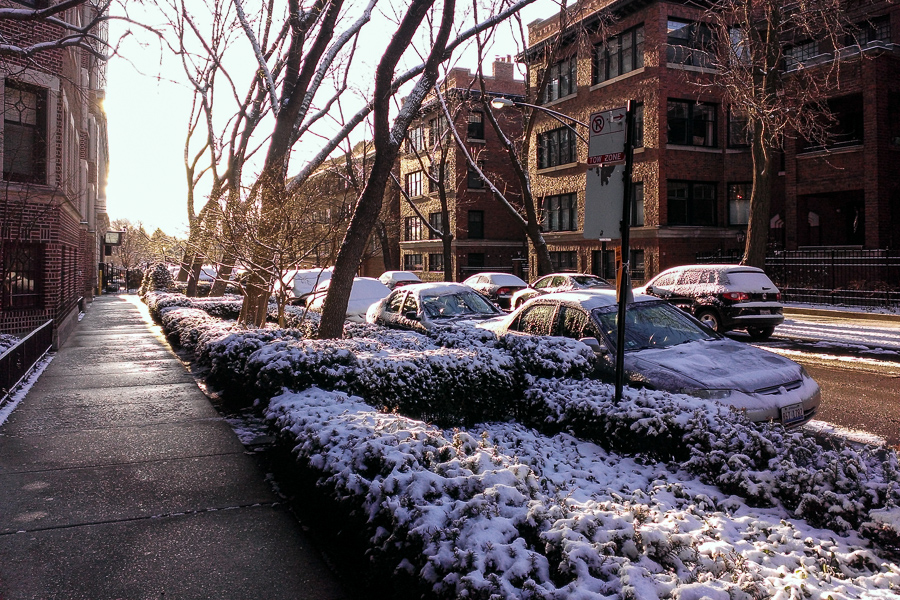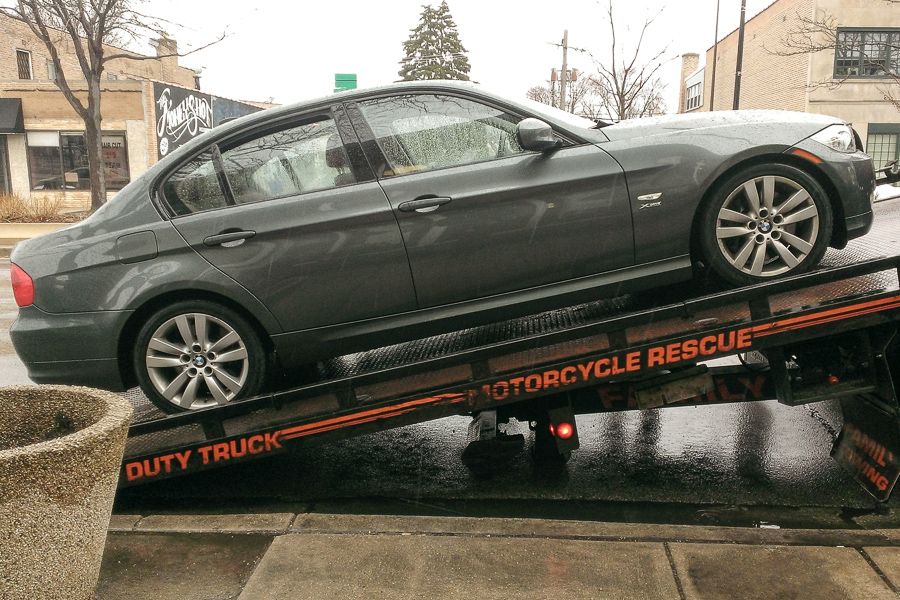As of today, 8 million people have signed up for health insurance under the Affordable Care Act. Krugman puts it in perspective:
[T]he benefits of Obamacare, for all its imperfections, are immense. Millions of people who lived extremely anxious lives now have far more security than before. Compared with those benefits, the complaints of some already insured people that they have less choice of doctors than before, or that they’re no longer allowed to retain minimalist plans, look like whining. (And of course not one of the more serious-sounding stories about soaring premiums and all that has held up under scrutiny.)
And speaking of whining, the GOP response seems to be to make every possible insinuation to the effect that the numbers are somehow fraudulent. I actually don’t think there’s a game plan here; their whole position was premised on the inevitable collapse of health reform, and they have no plan B.
Winning.
So, Sunday's car problem is decidedly non-trivial. As I suspected, the water pump failed. I got lucky yesterday because the cold air allowed me to get the car all the way to the nearest dealer (barely 2 km away), but the car is essentially undriveable.
This is a $1400 repair.
I am selling a kidney. Any takers?
This lovely spring morning in Chicago:

It's April 15th. And we have snow on the ground. Again.
At least we got a new record:
Snow has historically been no stranger in Chicago during the month of April. Official snow records indicate a trace or more of snow has fallen this late in 86 of the past 129 seasons dating back to 1884-85. That’s 67% of the time.
But the amount of snow which fell Monday and the fact it occurred within 3 days of 27°C warmth (on Saturday) and on a day which opened near 20°C is without precedent. Neither has occurred before over the 129 year term of official Chicago snow records.
Monday’s preliminary snow totals through 10 pm came in at 30 mm at O’Hare and 25 mm at Midway.
The 30 mm tally at O’Hare equals the amount of snow which typically falls over the full month of April and was the heaviest official snowfall to occur here so late in a season in 3 decades.
Winter, you're drunk. Go home.
After a last-minute offer was rejected by a Quebec court, Montreal-based Bixi (who make the bikes Divvy uses) was bought for C$4m by Canadian adventurer Bruno Rodi:
At the last minute, the New York company REQX Ventures – a project of Equinox Fitness and luxury real estate behemoth Related Companies – countered with an offer for $5.5 million. Both Rodi and REQX were willing to pay cash for the international arm of Bixi, which is $44 million in debt.
REQX’s sally came too late, a Quebec Superior Court justice decided on Friday after hearing lengthy arguments. Rodi’s $4 million carried the day, and all of it will go to the city of Montréal, which is Bixi’s major creditor and has shelled out an estimated total of $40 million on the bike-share innovator since it was founded in 2008.
Rodi is quite possibly the most interesting man in the world, though it's not clear he drinks Dos Equis.
I just took Parker for his evening constitutional, and discovered it's really warm out. My kitchen thermometer says it's 17°C, but the official temperature at O'Hare is 9°C. That's...unusual. In fact, here's what the weather near me looks like:

So, O'Hare and Midway, which are about 25 km apart, have a temperature delta of fully 10°C. If you look at a slightly more distant pair, say Waukegan and Gary, which are both on Lake Michigan but separated north-to-south by less than 100 km, the temperature delta is almost 16°C. That is one hell of a cold front.
And it's coming...this...way...
Near Lincoln and Bryn Mawr, 4pm:

The 9 km tow to my house was $150. It appears as if the water pump has failed. The car is driveable for short distances, so I hope that Tuesday morning I can get it to the nearest dealer, 2 km away.
I am not happy about this.
Just this morning I wrote about how warm the weather had gotten (finally!) but how it would get cooler throughout today.
Well, between 10:45 and 11, while I was in the grocery, the wind shifted, plunging the temperature 7°C and making me suddenly under-dressed. Plus, it's foggy.
Spring, we hope, will return in two weeks.
Yesterday Chicago got up to 27°C, one more "warmest day since November 7th." We've had a few of those recently. (November 7th got up to 28°C.)
It stayed relatively warm overnight, though, so for the first time in half a year I got to have dinner outside. This morning it's still warm enough to go outside without a jacket.
But this is Chicago. The forecast calls for falling temperatures and rain starting this afternoon, falling to 3°C tonight and slipping below freezing Monday night. With snow.
Sitll, for the next few hours, we have some sun and some warmth, so Parker and I are going outside for a bit.
Forget the Kennedy Expressway during rush hour; Chicago's railroads are worse:
Come to the west side of Chicago to
find out why a power plant in Michigan is short of coal and a
biodiesel maker in Brewster, Minnesota, can’t get enough grain.
The answer is found near Western Avenue, where rail cars
from Archer-Daniels-Midland Co. (ADM), the largest U.S. publicly
traded ethanol producer, rest idle on the track above the Dwight
D. Eisenhower Expressway. A short drive away a burnt orange,
yellow and black locomotive from Warren Buffett’s BNSF railway
sits on an overpass as motor traffic is snarled below.
They can’t move because increasing oil production from
North Dakota’s Bakken field, a record grain crop and
unprecedented cold weather overwhelmed the U.S. railroad system.
In part because of transport delays, coal inventories were down
26 percent in January from a year ago. A quarter of all U.S.
freight rail traffic passes through Chicago, or 37,500 rail cars
each day. The trip through the city can take more than 30 hours.
This has pushed up coal prices and cut coal consumption, which Bloomberg sees as a problem but I'm not so sure actually is. Also, BNSF is spending $5 billion on service upgrades near the oil fields, including adding 500 locomotives, 5,000 rail cars, and 300 crew members.
Right on time—i.e., six months after screwing up worse than any HHS secretary in history—Kathleen Sibelius has resigned:
Health and Human Service Secretary Kathleen Sebelius is resigning, U.S. officials told NBC News on Thursday.
U.S. officials told NBC News that President Barack Obama would nominate Sylvia Mathews Burwell, currently director of the White House Office and Management and Budget, to succeed Sebelius, 65, the former governor of Kansas, who was an original member of the Cabinet that Obama appointed when he took office in January 2009.
No reason for Sebelius' departure, was immediately available, but she came under sustained criticism as head of the agency in charge of the controversial rollout of Obama's health care reform initiative.
For those of you reading overseas, particularly in the U.K., we do things differently than most other democracies. In the U.K., when a minister completely fails at his job, he resigns more or less immediately, and gets back in government (or shadow government) usually at the next election. In the U.S., when a cabinet secretary completely fails, she waits six months, resigns, and never holds that level of responsibility again.
Now, contrast British and American bankruptcy laws and you will see how completely backwards these things are. British bankruptcy ruins a person; it's really the very-last-ditch thing you can do before living on the street. American bankruptcy is a chance to start over, and usually done just at the point where a person is in serious default but not yet destitute.
So it's interesting how our government resignations are just the opposite. Then again, someone like Sibelius will usually has no trouble earning millions on the lecture-and-book circuit, which I believe isn't an option in the U.K.
Anyway, Sibelius has resigned pretty much six months to the day that her epic failure became public knowledge. It's the American way, after all.